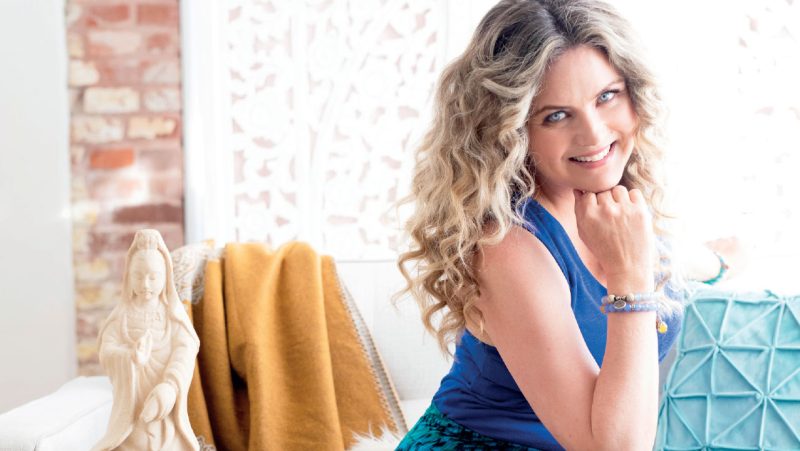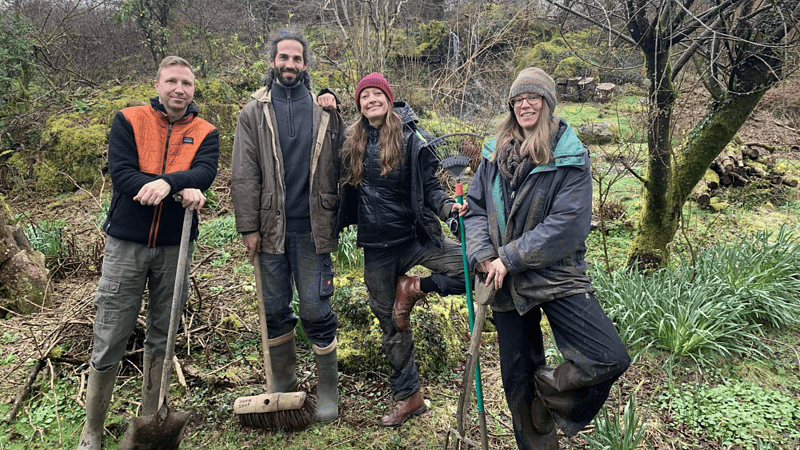
Remembering Our Innate Belonging
At some point, many of us begin to feel that we’re not quite enough. That we need to fix ourselves before we’re lovable. That we must be more composed, more successful, more “together” in order to belong. But how did we ever come to believe that being ourselves wasn’t good enough?
Reading time: 2 minutes
It’s a painful illusion—and a common one. Tara Brach calls it the trance of unworthiness, a state in which we become so identified with our flaws and perceived failures that we forget who we really are. We begin to believe the stories that say, “I’m not lovable,” “I’m too much,” or “I’m not enough.”
In this trance, we overlook something fundamental: our basic goodness. That which has always been present, even underneath fear, depression, anxiety, or self-doubt. As Brach teaches, “There’s something in us that is never damaged. It’s a kind of sacredness.” Remembering this doesn’t mean pretending we’re never afraid or never hurting—it means learning to relate to those parts of ourselves with compassion instead of criticism.
Jack Kornfield often shares a similar truth in his teachings. He reminds us that we don’t have to wait to be worthy. “You are a Buddha,” he says, “just as you are.” His stories, drawn from decades of teaching and spiritual care, often highlight this simple but radical truth: healing begins not with striving, but with presence. With the willingness to be with ourselves, gently and without judgment.
Mindfulness, in this sense, is not about achieving a particular state. It’s about seeing clearly—and remembering. Remembering that our fear doesn’t make us unworthy. That our sadness doesn’t make us broken. That our messy, very human lives are not in the way of our spiritual path—they are the path.
Belonging isn’t something we earn when we become better versions of ourselves. It’s something we reclaim when we recognize our true nature. That recognition often begins with small, tender moments: placing a hand on the heart when shame arises. Taking a breath before reacting to a harsh inner voice. Pausing to remember, “This, too, is held in love.” We are more than our insecurities—whether the ones we carry inside, the ones tied to how we look or how we feel in our own skin, or the fears that tighten us in moments like speaking up or being truly seen. Beneath it all is a quiet dignity that has never left us.
How Mindfulness Helps Us
Tara Brach often guides a practice called R.A.I.N.—Recognise, Allow, Investigate, and Nurture—as a way to work with difficult emotions. When we feel stuck in unworthiness or fear, this practice becomes a way home. It helps us turn toward ourselves with curiosity and care, rather than judgment or avoidance. Over time, we begin to experience the freedom that comes from meeting ourselves honestly.
This is what it means to remember our belonging.
We’re not here to become someone else. We’re here to wake up to the truth of who we already are: beings of awareness, compassion, and connection. Even when we feel lost. Even when we forget. There is always a way back.
That way is not through perfection. It's through presence.
So when the old stories return—about your hair, your clothes, your voice, your sadness—pause. Take a breath. And remember: nothing can take away your belonging. It is your birth right. It lives in you. It is you.
This path of remembering isn’t about getting it right. It’s about returning—again and again—to the truth that we are already whole. Some days it’s easier to trust that truth. Other days we forget. But even in forgetting, we are held by something larger than our fear, something steady and wise and loving. And that, too, is part of the practice.
You don’t have to become someone else to be worthy. You only have to come home to who you already are.





